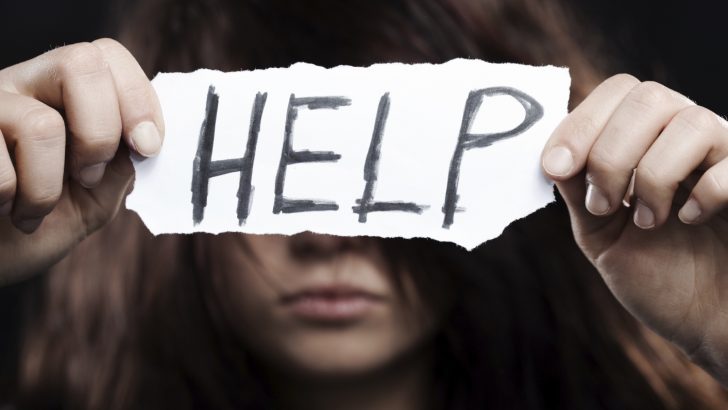It is utterly shocking that an 11 year-old-child, Milly Tuomey, should have taken her own life by suicide. And utterly sorrowful and distressing for the child’s’s family.
Following Milly’s tragic death, parents are being encouraged to talk to their children about suicide. Professor Brendan Kelly of TCD says that “There is no evidence that asking and talking openly about suicide increases the risk. Always ask. Always talk.”
This seems sound advice – particularly in view of the dangerous material that young children may be accessing through their smartphones and screen gadgets.
Degrading
A teacher in Co. Tyrone told me recently that she was very concerned at what the children were looking at: by the time boys are 12 they seem to have seen a degrading amount of pornography. And young girls are besieged by body images to urge them to be slim and look perfect. Milly herself felt very unhappy about her appearance, an anxiety prompted and emphasised by social media.
Counsellors say that in talking to children about suicide, parents should ask if the child is distressed or depressed about something in particular, and explore any ‘plans’ for suicide – the more ‘planning’ for suicide, the more likely it could happen. Contact the GP, too, and ask for a referral to the local Child and Adolescent Mental Health Service.
What is seldom mentioned is a moral point. It isn’t hard to see why suicide has been regarded as wrong by most moral codes: the grief and the distress caused to others can last for life.
Christianity prohibited it for good cause.
I’d suggest telling a true story about the suffering and loss inflicted on the bereaved after suicide. There are plenty of such true stories around.
Mental health
Suicide was sometimes covered up, or left ambiguous, by coroners’ reports in the past – for the very reason that families often wanted to believe that the person they loved didn’t do it deliberately.
Evidently, there can be a serious mental health issue, and that should surely be addressed. It’s shocking that the health system should fail to treat any young person before something drastic occurs.
Milly’s bereaved mother, Fiona, has set up an organisation to help others also bereaved by suicide, calling it HUGG (Healing Untold Grief Group).
The “untold grief” are key words here, and surely that should be central in talking to young people about suicide. And one of the messages should surely be “don’t do it”– it causes untold grief.
Because suicide is not just a personal, morally neutral “choice”, as it is sometimes portrayed in contemporary culture.
*****
We cannot ignore the relevance of geography
How history repeats itself, if usually in new livery and with ironic twists. In the 1900s, Home Rule for Ireland was progressing apace – the main obstruction being that Ulster Protestants were fervently against it, determined to block it.
A century later, the political arrangements of an independent Ireland are again obstructed by the same “loyal tribe”, as Ruth Dudley Edwards [pictured] has named the Ulster Unionists.
Another reprise from history: “The French are on the seas, says the Shan Van Vocht.” And so in ballad and in song, Catholic Ireland looked to Continental Europe for rescue from Protestant England’s stratagems. Continental Europe sometimes seemed ready to oblige, but sometimes misunderstood Irish culture. And sometimes the Continental nations were motivated by challenging England’s maritime power.
Today, perhaps, the ballad might be “the Poles are on the seas, says the Shan Van Vocht” as Donald Tusk made his pledge that Europe would stand by Ireland against Britain’s policies.
History always provides a clue to current events, yet it can often be geography that comes to play the decisive role.
*****
Well-deserved doctorate for Máirín
Admitted this week to the ranks of Honorary Doctorate from UCD – Doctor of Laws honoris causa – is Máirín de Burca [pictured], now aged 79, veteran political activist and champion of the underdog. Máirín was a founder member of the Irish Women’s Liberation Movement in 1970, but she was also a dedicated activist in (Official) Sinn Fein. Máirín was always fired up, most especially, about the cause of housing, and access to affordable homes for all.
Máirín began life working in shops, but soon got into political activism. She eventually quit Sinn Fein and became a pacifist. She continued to be politically active in organisations like the Dublin Housing Action Committee and the Irish Anti-Apartheid Movement.
She spent three months in jail in 1971 for participating in anti-(Vietnam) war demonstrations at the American Embassy.
She was a key player in advancing the rights of women to serve on Irish juries.
Máirín would have made an excellent Senator in Seanad Eireann with her combination of common sense, good humour, drive for justice and feet on the ground, and it’s a pity the powers that be didn’t nominate her for that. But she well deserves her honorary doctorate.


 Mary Kenny
Mary Kenny